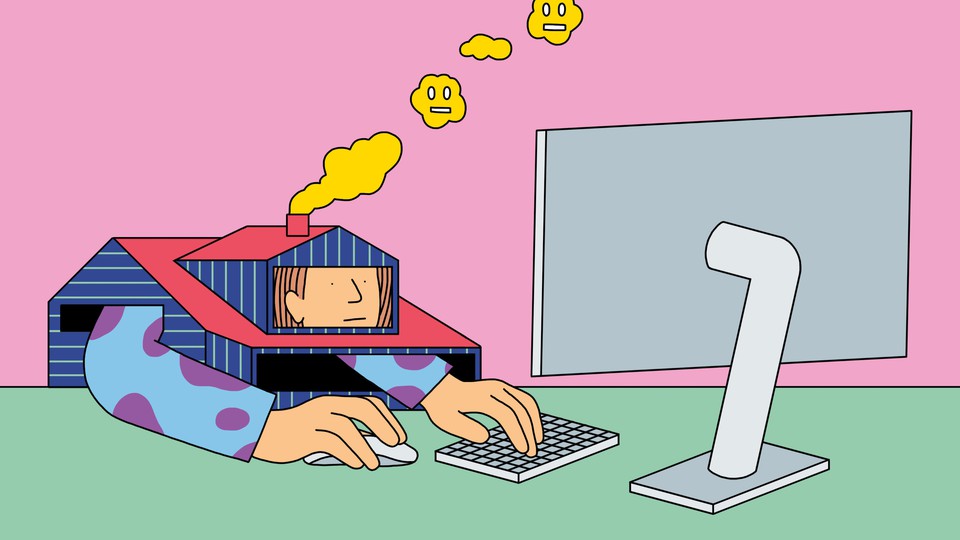It is harder to tell whether workers enjoy their work more than they did.
很難判斷工人們是否比以前更喜歡自己的工作。
Gallup, a pollster, has kindly supplied Bartleby with a smattering of job-satisfaction surveys from the 1960s and 1970s.
蓋洛普民意調查公司好心地向巴特比提供了一些20世紀60年代和70年代的工作滿意度調查結果。
Certainly there is little to suggest that workers back then were any happier than they are today.
當然,沒有什么跡象表明當時的工人比現在的更幸福。
More comparable data, also from Gallup, from the early 1990s onwards show gradually improving job satisfaction.
同樣來自蓋洛普的更具可比性的數據顯示,自上世紀90年代初以來,工作滿意度逐漸提高。
Last year 56% of American employees said they were “completely” satisfied with their job, an all-time high.
去年,56%的美國員工表示他們“完全”滿意自己的工作,創歷史新高。
A growing “precariat” of insecure workers gets a lot of headlines.
越來越多沒有安全感的“不穩定無產者”成為頭條新聞。
But 90% of American employees said in 2020 that they were completely or somewhat satisfied with their job security, up from 79% in 1993.
但在2020年,90%的美國員工表示,他們對自己的工作保障完全或多少感到滿意,高于1993年的79%。
If the jobs-are-bad narrative falls down on the facts, why is it so pervasive — and so intuitive?
如果“工作很糟糕”的說法與事實不符,那么為什么它如此流行又如此直觀可感呢?
Partly it is because no one has bothered to look at the evidence.
部分原因是沒有人費心去查看證據。
Other observers just don’t like the constant change and churn which has always been part and parcel of capitalism.
其他觀察者只是不喜歡資本主義的不斷變化和變動,而這一直是資本主義的一部分。
More still may subscribe, perhaps subconsciously, to what Friedrich Hayek, a philosopher, called an “atavistic” view of markets.
或許還有更多的人會潛意識地認同哲學家弗里德里希·哈耶克稱之“返祖”的市場觀點。
The very notion that people must sell their labour, for cash, in order to survive may violate some deeply held notion that humans are a fundamentally co-operative species, rather than a competitive one.
為了生存,人們必須出賣自己的勞動來換取現金,這一觀點本身可能違背了某些根深蒂固的觀念,即人類從根本上是一個合作的物種,而不是競爭的物種。

Yet perhaps the most important reason is that people dislike acknowledging trade-offs.
然而,也許最重要的原因是人們不喜歡承認權衡取舍這個事實。
Mill seemed unable to square his concern about the stultifying effects of capitalism with his argument that the division of labour had massively increased living standards.
密爾認為,勞動分工極大地提高了人們的生活水平,但他對資本主義使人呆滯的擔憂,似乎無法與這一觀點相吻合。
People often make similar errors today.
如今人們經常犯類似的錯誤。
The decline of trade unions may have hurt some workers’ wages; but it is less commonly acknowledged that this has also made it easier for less “traditional” workers, such as ethnic minorities and women, to enter the labour market.
工會的衰落可能損害了一些工人的工資;但很少有人承認,這也讓少數族裔和女性等不那么“傳統”的工人更容易進入勞動力市場。
Sedentary office jobs can make people fat; but people are far less likely to die on the job than they once were.
久坐不動的辦公室工作會讓人發胖;但人們在工作中死亡的可能性比以前小得多。
A relentless focus on the problems of labour markets still has its uses.
對勞動力市場問題的持續關注仍有其用處。
It encourages people to think about how to make improvements.
它鼓勵人們思考如何改進。
The evidence suggests that on average managers have got better in recent years but clearly some firms have a long way to go.
有證據表明,平均來說,經理們近年來有所好轉,但顯然有些公司還有很長的路要走。
Many people are still exploited by their employers.
許多人仍在受到雇主的剝削。
Today’s world of work is far better than its critics would like to admit.
如今的職場比批評者們愿意承認的要好得多。
But there is every reason to try to make it better still.
但我們完全有理由努力讓它變得更好。
譯文由可可原創,僅供學習交流使用,未經許可請勿轉載。











